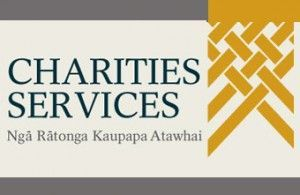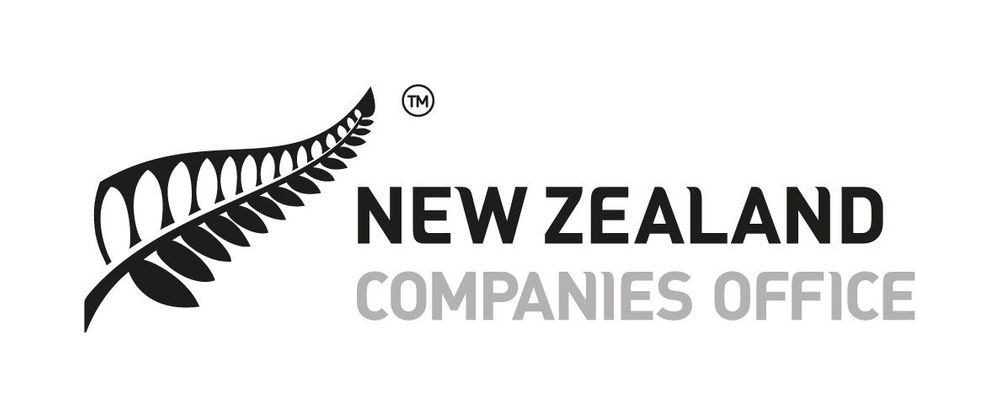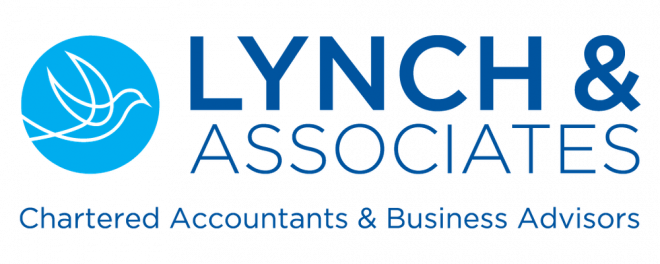Call us on 09 366 6005
Auditing & Assurance
The Mystery of Audit and Assurance Unravelled
Auditing is a specialist activity within accountancy. It is governed by over 30 professional standards and any firm that accepts audit work has to commit to knowing and complying with all those standards. Asking a non-specialist accountant to conduct an audit is a bit like asking your general practitioner to do a spot of open-heart surgery on the kitchen table.
Excluding Internal Auditors, in New Zealand there are two types of Auditors:
-
Licenced auditors at registered audit firms who can audit FMC reporting entities and public sector entities in New Zealand.
- People recognised as qualified auditors can perform other NZ statutory assurance engagements.
Individuals who perform issuer audits must hold a licence and audit firms must be registered.

The New Zealand Institute of Chartered Accountants (NZICA) has assessed and approved Managing Director Chris Lynch and Lynch and Associates Limited as a qualified auditor in accordance with the Financial Reporting Act 2013 and the NZICA Rules as required under s36L(1)(a) of the Financial Reporting Act 2013.
Do you really need an audit?
Not all entities need an audit. Sometimes the law means you have to have an audit or your constitution or rules require one, or a third party such as a Bank or a Funder may require you to have one. However sometimes a lesser assurance exercise such as a review or an agreed upon procedure may suffice.
Registered Charities

If your total operating expenditure for each of the previous two accounting periods was:
-
Over $500,000 (medium) – your financial statements must be either audited or reviewed by a qualified auditor; or
- Over $1 million (large) – your financial statements must be audited by a qualified auditor.
Tier 3 charities that are required by statute to have an audit or review will also have their non-financial information audited or reviewed.
Incorporated Societies

There is a common misconception that all incorporated societies need to be audited. In fact, the Incorporated Societies Act 1908 is silent on auditing and imposes no obligations. The incorporated society’s constitution may stipulate that an audit is required, but that can be changed by the members. They may be perfectly happy with one of the alternatives listed below. A revised constitution can always allow for the members to vote on having an audit if they are concerned about aspects of the financial statements.
Funding bodies often request a copy of audited accounts. This usually stems from a misunderstanding about what assurance an audit gives and ignorance of its cost. Funders’ information needs can usually be better and more economically served by a targeted or ‘compliance’ audit.
In circumstances where there is significant concern about the reliability of the financial report it is an audit that will give the most robust reassurance that matters have been reported properly.
Companies and public entities
The following companies have to have their financial statements audited:
- large companies, except as noted below;
- public entities;
- large overseas companies that carry on business in New Zealand;
- other companies with 10 or more shareholders (unless the shareholders of the company opt out of compliance); and
- other companies with fewer than 10 shareholders if shareholders of the company holding at least 5% of the voting shares require the company to comply.
The audit must be conducted by a qualified auditor in accordance with applicable professional standards. Overseas companies may, with the consent of the Registrar, use their native auditor if the audit is conducted under substantively equivalent auditing standards.
If the auditor’s report indicates a breach of the Companies Act, the auditor must, within 7 working days after signing the report, send a copy of the report and a copy of the financial statements to the Registrar and the External Reporting Board.
(See sections 206 to 207CA of the Companies Act 2013)

A NZ company that is a subsidiary of a body corporate incorporated outside NZ must file audited financial statements with the Registrar of Companies if, at the balance date for the two preceding accounting periods, at least one of the following applies:
- the total assets for the company and its subsidiaries were more than NZ$20 million,
- the total revenue was more than NZ$10 million.
Group financial statements must be filed for companies that, at the balance date, have one or more subsidiaries.
A NZ company with 25 per cent or more of its voting shares held overseas, must file audited financial statements if, at the balance date for the 2 preceding accounting periods, at least 1 of the following applies:
- the total assets for the company and its subsidiaries were more than NZ$60 million,
- the total revenue was more than NZ$30 million.
This includes any NZ company with 25 per cent or more of its voting shares held by:
- a subsidiary of a body corporate incorporated outside NZ, or
- a person who is not ordinarily resident in NZ.
FMC audits
(Auditor must be licensed and registered)
An FMC audit is defined in section 6(1) of the Auditor Regulation Act 2011 and means the audit of:
- The financial statements or group financial statements of an FMC reporting entity that are prepared under the Financial Markets Conduct Act 2013 (FMC Act); or
- The financial statements of a scheme or a fund prepared under section 461A of the FMC Act; or
- The financial statements referred to in section 461B of the FMC Act; and
- Includes any audit or review required to be carried out under the regulations made, or exemptions granted, under the FMC Act or the Securities Act 1978 by a qualified auditor (within the meaning of either of those Acts); and
- Includes any audit of the financial statements or group financial statements prepared under the Financial Reporting Act 1993 in accordance with section 55 of the Financial Reporting Act 2013; and
- Includes any issuer audit (as defined in the Auditor Regulation Act 2011 before 1 April 2014); but
- Does not include any audit carried out under the Public Audit Act 2001 (whether the Auditor-General or any other person is acting as the auditor).
- An FMC reporting entity is defined in s 451 of the Financial Markets Conduct Act and mainly includes issuers, licensed supervisors, banks, credit unions, building societies and the like.
Some common misunderstandings concerning the audit process
1. The audit provides absolute assurance the financial statements are 100% correct.
An audit provides reasonable assurance that the financial statements are free from material misstatement, whether caused by fraud or error. An audit is not intended to give absolute assurance or to detect all fraud or errors that may exist.
2. The auditors pour over everything in our ledgers.
We cannot possibly review ever single transaction and ledger entry. The auditor will rely on control systems in place and use statistical sampling methods to look at a small but representative sample of an entity’s transactions to test the overall accuracy. We will also use analytical techniques to test whether things are consistent with their expectations.
3. The Auditors are out to find management weaknesses.
Our job is to maintain a professional scepticism so that we can exercise our independent judgement. That’s why we need to ask the same question in a different way sometimes. It is not our job to tell management how to fix their systems, or do the work for the entity. We will however point out gaps or when something doesn’t follow the correct policy, and we will make suggestions about areas that would benefit from improvement. We are neither friend nor foe but it is important that we and the entity have a strong professional relationship. Good quality engagement leads to a good quality aud
4. The Auditors will discover if there has been any dodgy stuff going on
We may uncover fraud during the audit but it won’t be a primary focus of the audit. We will perform some work to establish that fraud has been considered by governors and management as an area of focus, but our main driver of the audit is to give an independent report on an entity’s financial and service performance reports and control systems. An entity’s control systems are the best safeguard against fraud.
5. The auditors can prepare the financial statements
The auditor cannot help an entity prepare reports. We must be able to maintain our independence otherwise we are in danger of auditing our own work. Of course, because we know the accounting standards so well we are able to assist you and discuss with you what should be prepared ahead of the audit and what documentation needs to be ready for the audit.
Working with your auditor
Getting the most out of an annual audit works both ways – the better prepared you are for our audit team’s visit, the smoother the audit will go for everyone.
We want our clients to receive value for their audit and not view it as a grudge purchase.
Our audit teams aim to work with you in an effective and efficient manner and to meet all deadlines that are agreed up front. We will also want to share with you our learnings about your business, and the industry or sector you work in.
An efficient audit means that we need work closely together to get ready for the audit team’s visit.
These are the important elements we see in achieving that:
- Our understanding of the industry or sector you work in;
- Our understanding of the environment, your key people and your firm’s culture;
- Understanding the key milestones in the audit process;
- During the planning stage we work with you to understand and identify business and audit risks and our proposed response to them;
- We document these risks in our Audit Arrangements letter and discuss these with you before finalising our audit plan;
- You help us at this stage of the work by openly discussing the issues and questions that concern us and you and how we can address them together;
- You will inform us of changes to the operating environment, business systems, or processes, and any other matters that may be relevant to the audit;
- To help to make the audit as productive as possible we encourage you to discuss with us where you see ways to improve the efficiency of the audit. We are open and willing to listen to your suggestions;
- To enable us to carry out the annual audit efficiently and within the proposed audit fee, we expect that, before our audit team arrives, you will have:
- prepared financial statement account balances and disclosures or performance information results with supporting documentation, clearly showing the main transactions making up each balance or result;
- prepared robust variance explanations (comparing this year’s actual results with last year’s results and also the budget) for the income statement, the balance sheet, and the statement of cash flows;
- ensured that people are available when our audit team is on site, to answer questions and provide additional information and records in a timely manner; and
- done an appropriate level of quality control review over the draft financial statements and statement of service performance before providing them to us for auditing;
-
We encourage our clients to respond promptly to any significant findings that we raise as a result of the audit;
-
We also suggest that you prepare action plans to implement recommended improvements and monitor those actions and the resulting improvements.
In Conclusion
We encourage all our current and prospective audit clients to consult with us about accounting or auditing issues and problems in advance to avoid surprises and to resolve issues early.
We will be as helpful as possible without compromising our independence. We trust this has given you some constructive options to consider. We would be happy to elaborate on any of the concepts described above and to meet with your Board or those charged with Governance to discuss our audit and assurance services.
